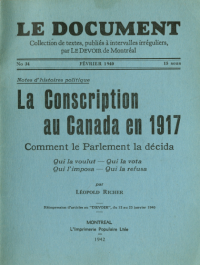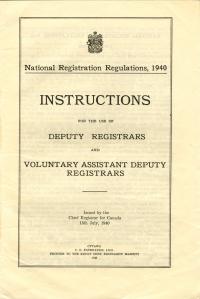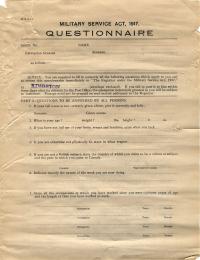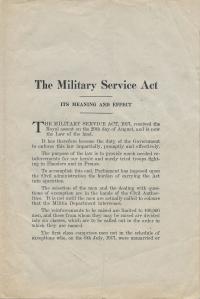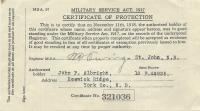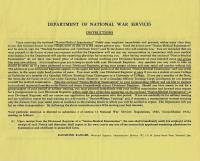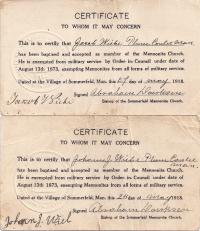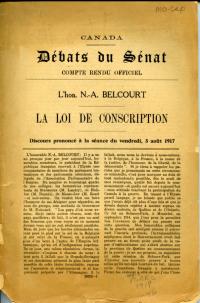Conscription
Le Document
Le Document is a French-Canadian publication that covers various social and political regional issues. This specific edition from February 1940 focused on the topic of conscription in Canada in 1917.
The editors felt it was their duty to share this information about conscription with the people of Québec, including who supported it, who voted for it, who opposed it, and who refused it.
National registration comes to Canada
According to the 1940 legislation, everyone over the age of 16 was compelled to register with the federal government, giving their personal information and employment history, to provide an inventory of the available skills that might be mobilized for the war effort.
Vote Meighen
Arthur Meighen, briefly Prime Minister during the 1920s, tried to return to office in 1942. Meighen had been chosen as leader of the opposition, but he lost the bi-election needed to get him a seat in the House of Commons. His campaign was based on a pro-conscription platform.
Exempted from conscription
Men who had been given exemptions under the Military Service Act were required to complete this questionnaire to justify their claim. It pays particular attention to men employed in the agricultural sector.
Conscription comes to Canada
Conscription came to Canada in 1917 amidst great controversy. This leaflet was part of the government's effort to explain why it was necessary and how it would work.
A law-abiding man
Many young men attempted to evade conscription during the First World War, so the military authorities provided certificates to men who had observed the law and properly registered with the government, as proof against harassment by the police of potential employers.
Instructions for conscripts
Men who were called up for military service during the Second World War received explicit instructions on how to report and secure a medical examination.
Mennonites and conscription
Under Canadian law, exemption from conscription during the First World War depended on membership in a faith group that had been recognized as pacifist. These cards verified that Jacob and Johann Wiebe were baptized members of the Sommerfeld Mennonite Church in Manitoba and were therefore not subject to conscription.
Conscripts from Quebec
A conscripted soldier was not necessarily a reluctant soldier. The fact that these French-Canadian men were willing to have portrait photographs taken in uniform suggests that they were not reluctant to celebrate serving under the Maple Leaf.
The Senate debates conscription
Part of a series covering the conscription debate in the Canadian Senate, this booklet presents the opinions of the Right Honourable Napoléon Belcourt, a Toronto-born lawyer who had represented the city of Ottawa as a member of parliament.

